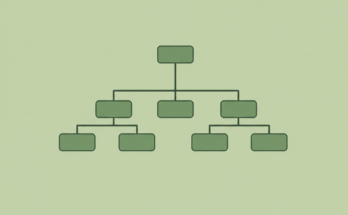When most people hear the word “blockchain”, they automatically think of Bitcoin, Ethereum, and other cryptocurrencies. While blockchain technology is indeed the backbone of digital currencies, its potential stretches far beyond the world of finance. Blockchain is proving to be a transformative force in a range of industries, from supply chain management to healthcare, education, and beyond. In this post, we’ll explore the untapped potential of blockchain across various sectors and how it’s reshaping industries in ways we never imagined.
![[Blockchain Beyond Cryptocurrency] The Untapped Potential Across Industries](https://mineatech.com/wp-content/uploads/2025/08/blockchain-beyond-cryptocurrency-the-untapped-potential-across-industries-1024x640.png)
➢ Also read: Top 5 Blockchain Platforms Competing with Ethereum in 2025
What is Blockchain?
At its core, blockchain is a distributed ledger technology (DLT) that securely records data across multiple computers. Unlike traditional centralized systems, blockchain operates in a decentralized manner, where every participant in the network holds a copy of the ledger. Each “block” in the chain is connected to the previous one, forming a continuous and immutable record of transactions. This feature makes blockchain secure, transparent, and resistant to tampering. Though blockchain’s association with cryptocurrencies is well-known, its core principles are applicable in a wide variety of fields. Let’s take a look at how blockchain is being used beyond the world of finance.
1. Supply Chain Management
Supply chains are often complex, involving many players from manufacturers to distributors to retailers. Blockchain can simplify and streamline this process by providing an immutable record of every transaction along the way.
➠ Key Benefits:
- Enhanced Transparency: Blockchain offers real-time tracking of goods as they move through the supply chain. This makes it easier for businesses and consumers alike to verify the origin of products and ensure ethical sourcing.
- Fewer Middlemen: With a decentralized ledger, the need for intermediaries is reduced, cutting down on costs and administrative overhead.
- Counterfeit Prevention: Blockchain ensures that every step of the supply chain is recorded, making it easier to spot counterfeit products and verify the authenticity of goods.
→ Example: IBM’s Food Trust Network uses blockchain to track the movement of food from farm to table, providing consumers with information about the food’s origin and ensuring the safety and authenticity of products.
2. Healthcare
Healthcare is an industry that generates vast amounts of sensitive data, yet it often struggles with fragmentation and inefficiency. Blockchain has the potential to address many of these challenges by offering a secure, transparent, and interoperable system for storing and sharing patient data.
➠ Key Benefits:
- Data Security: Blockchain’s encryption protocols can keep medical records secure, reducing the risk of data breaches and unauthorized access.
- Interoperability: Blockchain allows for seamless data sharing between different healthcare providers, creating a unified and holistic view of a patient’s health history.
- Drug Traceability: With blockchain, every step in the pharmaceutical supply chain can be recorded, helping to combat counterfeit drugs and ensuring the authenticity of medications.
→ Example: MedRec, a blockchain-based platform developed by MIT, allows healthcare providers to securely share patient records across hospitals and clinics while ensuring patient privacy and consent.
3. Digital Identity and Authentication
In an increasingly digital world, safeguarding personal data and ensuring secure authentication is more important than ever. Blockchain offers an innovative solution by providing a self-sovereign identity model that allows individuals to control and manage their personal information.
➠ Key Benefits:
- Self-Sovereign Identity: Blockchain enables individuals to create and control their own digital identities, reducing the need for third-party verification services.
- Enhanced Security: Blockchain’s encryption and decentralization make it far more secure than traditional identity management systems, reducing the risk of identity theft.
- Decentralized Authentication: Blockchain can offer secure, password-less authentication methods for online services, such as logging in with a fingerprint or face recognition.
→ Example: Sovrin is a decentralized digital identity network built on blockchain, where individuals can control their own personal data and prove their identity without relying on centralized organizations.
4. Voting Systems
The integrity and transparency of voting systems are crucial to the health of any democracy. Traditional voting systems are often vulnerable to fraud, errors, and hacking. Blockchain offers a solution by creating a tamper-proof record of votes, ensuring that elections are fair, transparent, and trustworthy.
➠ Key Benefits:
- Transparency: Blockchain allows each vote to be recorded on a public ledger, which can be independently verified by any interested party.
- Security: With blockchain, once a vote is cast, it cannot be altered, ensuring the integrity of the election process.
- Accessibility: Blockchain-based voting systems could allow for remote and secure voting, making it easier for people to participate in elections, even if they are abroad or facing mobility issues.
→ Example: Voatz is a blockchain-based mobile voting platform that has been trialed in U.S. elections, allowing voters to cast ballots securely via their smartphones.
5. Intellectual Property Protection
In the digital age, intellectual property (IP) is often misused or infringed upon. Blockchain can provide a solution by creating an immutable, transparent record of ownership for digital content such as music, art, and software.
➠ Key Benefits:
- Proof of Ownership: Blockchain provides a permanent, verifiable record of ownership, making it easier for creators to protect their work.
- Fair Distribution of Royalties: Through the use of smart contracts, blockchain can automate royalty payments, ensuring that creators are fairly compensated every time their work is used or sold.
- Decentralized Marketplaces: Blockchain enables the creation of decentralized platforms where creators can sell their work directly to consumers, bypassing intermediaries and retaining more control over their intellectual property.
→ Example: Audius is a decentralized music streaming platform built on blockchain, where artists can upload their music and receive fair compensation without needing to rely on record labels or streaming giants.
6. Insurance
The insurance industry is built on trust, but the claims process is often slow, inefficient, and prone to errors. Blockchain can simplify the insurance process by automating claims and policy management, reducing the need for intermediaries.
➠ Key Benefits:
- Automated Claims Processing: Smart contracts can automate claims, ensuring that they are processed quickly and accurately without the need for human intervention.
- Transparency: Blockchain provides a transparent record of all transactions, allowing both insurers and policyholders to track claims in real-time.
- Fraud Prevention: Blockchain’s secure and immutable nature makes it much harder to manipulate records or submit fraudulent claims.
→ Example: AIG and IBM have partnered to create a blockchain-based insurance platform called Smart Proof of Insurance, which automates insurance verification and claims processing for better efficiency.
7. Real Estate
The real estate market is notorious for being cumbersome and slow, with a lot of paperwork and manual processes involved. Blockchain can transform the industry by providing a secure, transparent, and efficient system for property transactions.
➠ Key Benefits:
- Tokenization of Real Estate Assets: Blockchain allows real estate properties to be tokenized, enabling fractional ownership. This can democratize access to real estate investments, allowing smaller investors to participate.
- Smart Contracts: Blockchain-based smart contracts can automate the property transfer process, eliminating the need for intermediaries like lawyers and notaries.
- Transparent Ownership Records: Blockchain’s immutable ledger can securely store property titles, making it easier to verify ownership and reduce the risk of disputes.
→ Example: Propy is a blockchain-based platform that allows users to buy and sell properties using cryptocurrency and smart contracts, streamlining the entire real estate transaction process.
Conclusion [The Untapped Future of Blockchain]
While blockchain has gained widespread recognition in the cryptocurrency space, its applications across other industries are just beginning to be explored. From healthcare to supply chains, voting systems to intellectual property protection, blockchain technology holds the key to solving some of the most pressing challenges in today’s world.
As businesses continue to experiment with blockchain and refine its use cases, we can expect to see even more transformative applications emerge. The future of blockchain is not limited to digital currencies, it’s a technology that could reshape entire industries, creating more secure, transparent, and efficient systems across the globe.


![What Is a Blockchain Consensus Algorithm? [Explained Simply]](https://mineatech.com/wp-content/uploads/2025/08/what-is-a-blockchain-consensus-algorithm-explained-simply-348x215.png)
